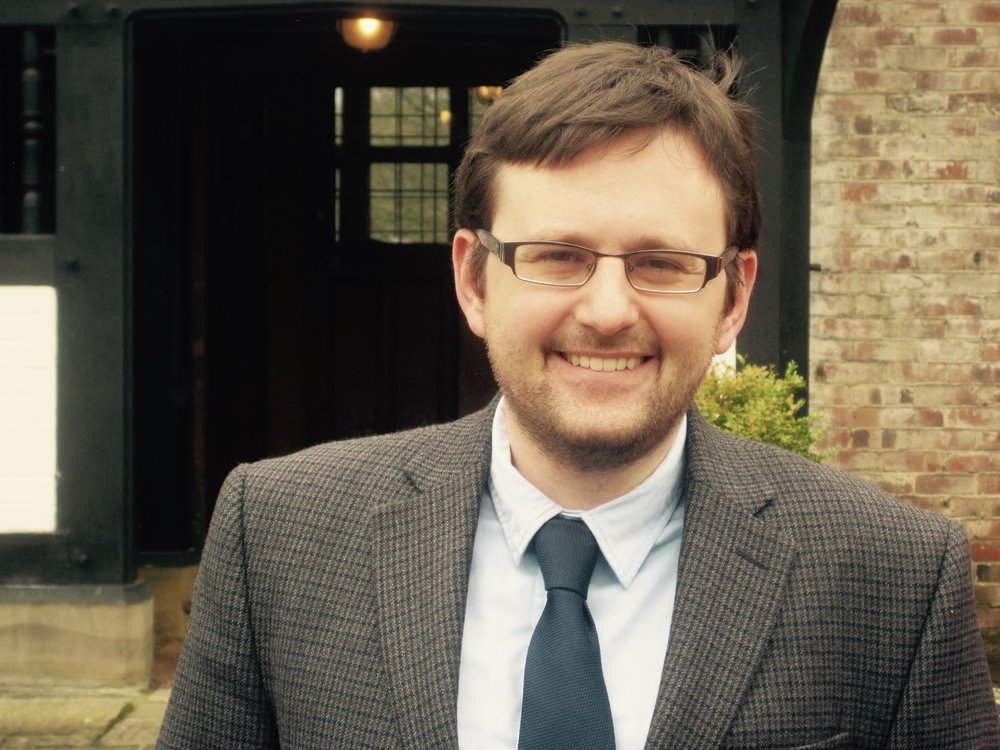 Andrew is the post-doctoral research and teaching fellow at the Manchester Wesley Research Centre.
Andrew is the post-doctoral research and teaching fellow at the Manchester Wesley Research Centre.
In January 2016, he successfully defended his doctoral thesis at the University of Edinburgh, where it was examined by Emeritus Professor Hartmut Lehmann (Göttingen and Kiel) and Dr Thomas Ahnert (Edinburgh). His thesis examines the ‘Awakening movement’ (Erweckungsbewegung) in German Protestantism during the Vormärz period (1815-48) in German history. This religious movement was the last nationwide Protestant reform and revival movement to occur in Germany. His thesis interprets the ‘Awakening movement’ as a product of the larger social changes that were re-shaping German society during this time. Theologically, Awakened Protestants were traditionalists. They affirmed religious doctrines that orthodox Protestants had professed since the confessional statements of the Reformation-era. However, Awakened Protestants were also distinctly modern. Their efforts to spread their religious beliefs were successful because of the new political freedoms and economic opportunities that emerged in the early nineteenth century. These social conditions gave members of the emerging German middle class new means and abilities to pursue their religious goals. Adapting Protestantism to modern society in these ways was the most original and innovative aspect of the Awakening movement. More broadly, his doctoral research examined how Europe’s transition to modernity affected the religious beliefs and activities of Protestant communities in Germany, Britain, and the Netherlands during the period from 1750 to 1850.
His research project at the MWRC examines how John Wesley's lifelong reading of German Protestant theological texts (Luther, Arndt, Böhme, Francke and the Halle Pietists, Terstegen, Zinzendorf and the Moravians, Bengel) shaped his preaching, teaching, and writing for early Methodists. By using the special collections at the MWRC and in the John Rylands Library, his research will provide a systematic analysis of these figures' influence on Wesley as well as his interpretation and mediation of them to the wider Methodist movement.
He is originally from Pittsburgh, Pennsylania and is a graduate of Grove City College and Gordon-Conwell Theological Seminary. Most recently, he has been a member of Saint Columba's Free Church of Scotland in Edinburgh.
Publications
‘Dissembling Orthodoxy in the Age of the Enlightenment: Frederick the Great and his Confession of Faith’, Harvard Theological Review, 109 (2016), 102-128.
'German Protestants' receptions and interpretations of George Whitefield, 1739-1857’, Wesley and Methodist Studies, (forthcoming 2016).
‘The Enlightenment in the Historical Imagination of Evangelical and Awakened Protestants in Europe, Britain, and North America, c. 1750-1850’, Religion in the Age of Enlightenment, 6 (forthcoming in 2016).
‘European Revivals and the History of Evangelicalism: Moving Beyond the Anglo-American Paradigm’, Fides et Historia, 47 (2015), 1-18.
‘The Committee for the Relief of Distress in Germany: A Case Study of Cooperation and Solidarity between British Evangelicals and German Pietists during the Napoleonic Era’, Pietismus und Neuzeit: Ein Jahrbuch zur Geschichte des neueren Protestantismus, 40 (2014), 163-201.
‘The Religious Landscape of German-speaking Europe and Four Calls for Religious Reforms on the Eve of the German Awakening: Johann August Urlsperger (1780), Emperor Joseph II of Austria (1781), Immanuel Kant (1784), and King Friedrich Wilhelm II of Prussia (1788)’, European Journal of the Theology, 21 (2012), 148-155.
